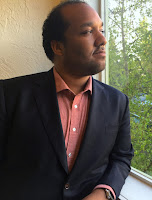Dangerous Love and Anti-Love Drugs: Neuroethics & Public Health Problems

By Kelsey Drewry Kelsey Drewry is a student in the Master of Arts in Bioethics program at the Emory University Center for Ethics where she works as a graduate assistant for the Healthcare Ethics Consortium. Her current research focuses on computational linguistic analysis of health narrative data, and the use of illness narrative for informing clinical practice of supportive care for patients with neurodegenerative disorders. The half-priced heart-shaped boxes of chocolates lining grocery store shelves serve as an undeniable marker of the recent holiday. Replete with conceptions of idyllic romance, Valentine’s Day provides an opportunity to celebrate partnership, commitment, and love. However, for those experiencing heartbreak or unrequited love, Cupid may be a harbinger of suffering rather than giddy affection. The transition from love to pain is an incredibly common experience, and one that is formative for many. The extent of character building in heartbreak and other negative affe...


